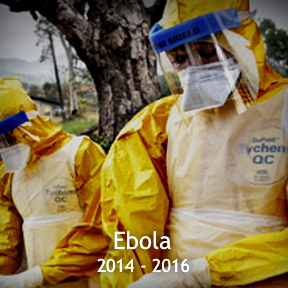Student Modules
Modules
Learn about infectious agents as well as epidemics and pandemics past and present.
What are infectious diseases? What causes them? How are they different from noninfectious disease? In this module you will learn about infectious diseases and the agents that cause them. You will determine the differences between infectious and noninfectious diseases, explore the different kinds of organisms that cause disease, distinguish among outbreaks, epidemics, pandemics, and emerging and re-emerging diseases, and compare Ebola virus and measles virus, the infectious agents involved in recent outbreaks of these diseases.
Explore the science of tracking the origins and causes of outbreaks and epidemics.
This module will introduce you to epidemiology — the science of tracking the causes of an epidemic and identifying factors involved in its spread. Epidemiology is the study of the distribution of diseases in a population, and the application of this study to controlling the outbreaks, epidemics and pandemics by understanding its origins and patterns of the spread of a disease. The module explores three major ideas in epidemiology – identifying the first cases of an infectious disease, determining the causative agent, and tracking how it spread.
Investigate the many factors that determine whether outbreaks and epidemics of emerging and re-emerging diseases will occur.
In this module, we will examine in greater depth factors that result in outbreaks and epidemics. Students explore the biology and ecology of viruses that determine the origins of new, emerging diseases. They examine the characteristics of a virus and its hosts that impact whether an outbreak will remain confined to a local area or result in an epidemic or pandemic. We will begin by examining the difference between a pathogen being infectious and being contagious. Next, we'll identify different modes of transmission of infectious diseases. After that, we will determine the impact of vaccination on a measles outbreak.
Learn about how infectious diseases can be treated and how personal behaviors, public health programs, the immune response, and vaccines can protect against infection.
In this module you will learn about ways that infectious diseases can be prevented through public health systems, personal care, and vaccination. You will explore how your immune system protects you from viral infections and how vaccines activate the immune system to prevent infectious agents from taking up residence in you. You will then explore why certain viral diseases could be eradicated and the challenges involved




